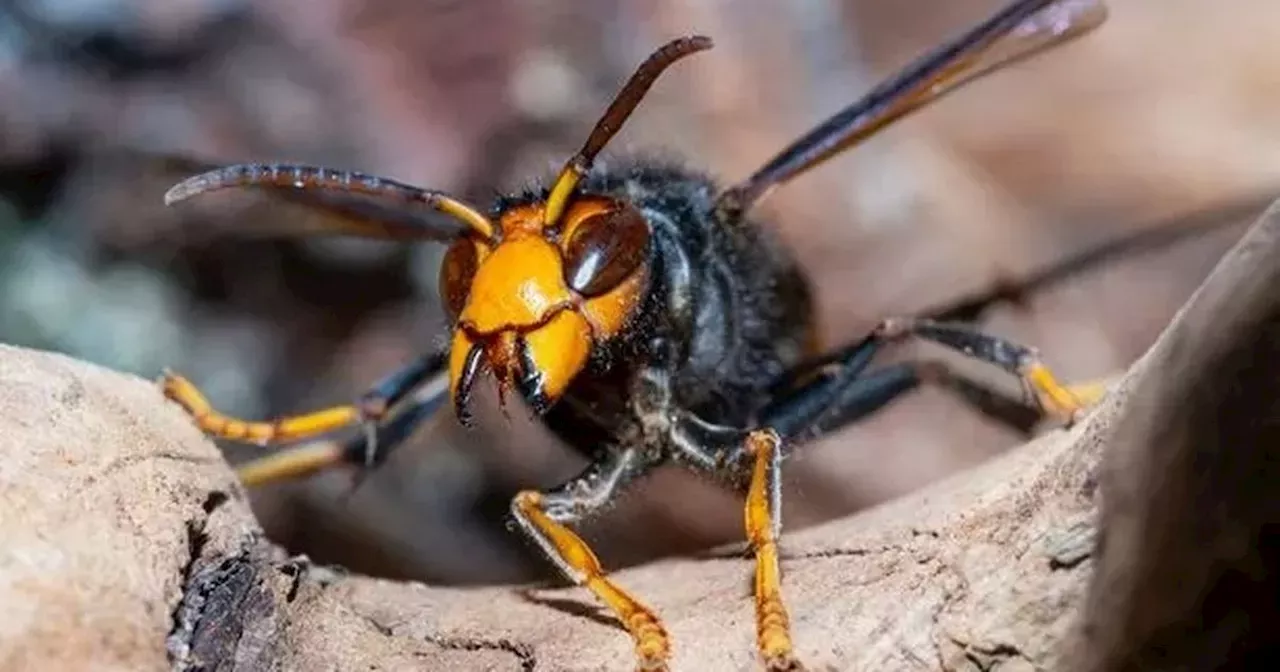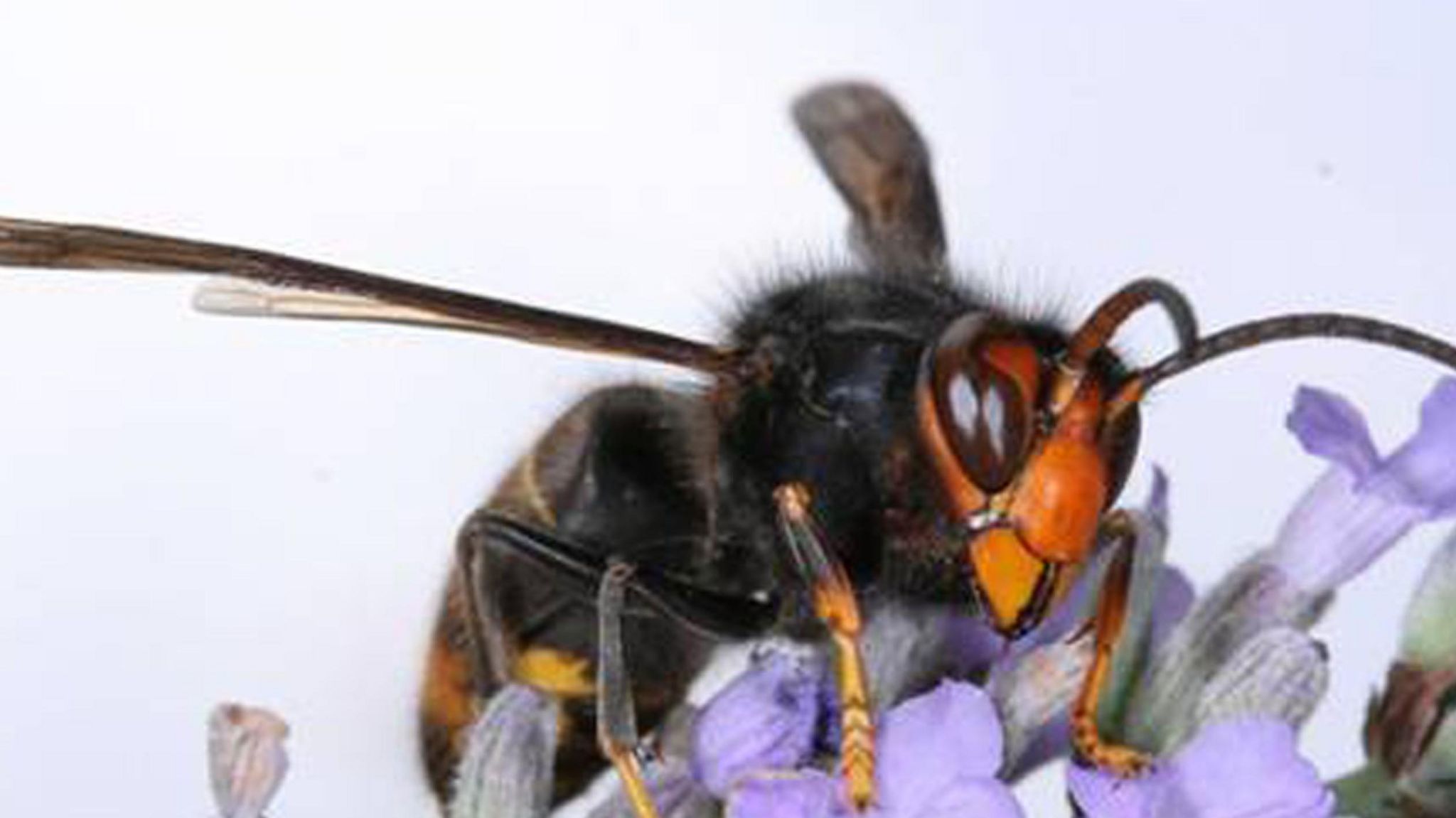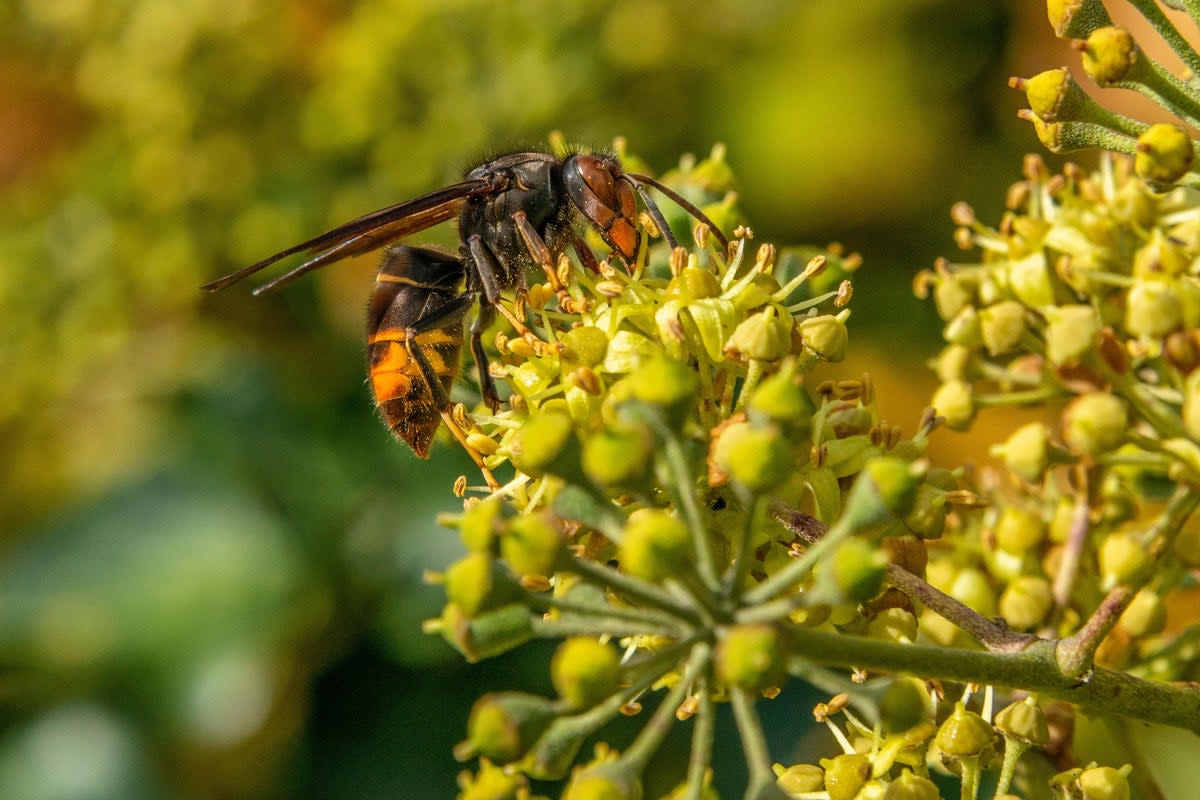Asian Hornet Introduction: Asian Hornet News
Asian hornet news – The Asian hornet, scientifically known as Vespa velutina, is a large predatory wasp species native to temperate and tropical regions of Asia. It is characterized by its distinctive black and yellow coloration, with a black velvety body and bright yellow markings on its head and abdomen. Asian hornets typically build their nests in trees or other elevated structures, and they feed primarily on other insects, including bees and other wasps.
The Asian hornet has been accidentally introduced to other regions, including Europe and North America, where it has become an invasive species. The spread of the Asian hornet has raised concerns due to its potential impact on native ecosystems, particularly on pollinators such as bees, and on human populations, as it can be aggressive when disturbed.
Distribution and Impact
The Asian hornet is native to temperate and tropical regions of Asia, including China, Japan, Korea, and Southeast Asia. It has been accidentally introduced to other regions, including Europe and North America, through human activities such as the transportation of goods and materials. The introduction of the Asian hornet to new areas has raised concerns due to its potential impact on native ecosystems and human populations.
In Europe, the Asian hornet has become established in several countries, including France, Spain, Portugal, and Italy. It has also been detected in the United Kingdom and other parts of Europe. The spread of the Asian hornet in Europe has raised concerns due to its potential impact on native pollinators, such as bees, which are important for the pollination of crops and wildflowers. The Asian hornet is a predator of bees, and it can kill large numbers of bees in a short period of time.
In North America, the Asian hornet has been detected in several states, including Washington, Oregon, and British Columbia. The introduction of the Asian hornet to North America is a relatively recent event, and it is not yet clear what the long-term impact of the species will be. However, there are concerns that the Asian hornet could have a negative impact on native pollinators and other insects.
Asian Hornet Impact on the Environment

The introduction of the Asian hornet into non-native habitats has far-reaching ecological consequences. This invasive species poses a significant threat to native insect populations, particularly bees and other pollinators.
Asian hornets are voracious predators, preying heavily on bees, wasps, and other insects. Their aggressive hunting behavior and large size give them an advantage over native species, leading to a decline in their populations. This disruption in the food chain can have cascading effects on the entire ecosystem.
The Asian hornet news continues to buzz, but it’s not the only headline making waves. The iranian president’s death has sent shockwaves across the globe. However, the hornet’s relentless spread remains a pressing concern, as its invasive nature threatens ecosystems and poses a risk to human health.
Experts urge vigilance and proactive measures to curb its population and minimize its impact on our communities.
Native Insect Populations
The decline in bee populations due to Asian hornet predation is particularly concerning. Bees play a vital role in pollination, ensuring the reproduction of many plant species. Without sufficient pollinators, plant diversity and ecosystem stability can be severely compromised.
Other insect populations affected by Asian hornets include wasps, flies, and butterflies. These insects play important roles in decomposition, nutrient cycling, and seed dispersal. Their decline can disrupt ecosystem processes and reduce biodiversity.
As the Asian hornet continues to spread, it is important to stay up-to-date on the latest asian hornet news . This invasive species poses a serious threat to our native honeybees and other pollinators. By staying informed, we can help to protect our ecosystem and prevent the spread of this dangerous pest.
For the latest asian hornet news , visit our website.
Biodiversity and Ecosystem Balance
The loss of native insect populations due to Asian hornet predation can have significant implications for biodiversity and ecosystem balance. Reduced pollination services can lead to a decline in plant diversity, which in turn affects other species that rely on those plants for food and shelter.
The disruption of ecosystem processes, such as decomposition and nutrient cycling, can also have long-term consequences. These processes are essential for maintaining soil health and ecosystem productivity.
Asian Hornet Threat to Human Health

The Asian hornet poses a significant threat to human health due to its venomous sting. Understanding the potential risks and symptoms associated with stings is crucial for taking appropriate precautions.
Asian hornet news has been making headlines lately, with experts warning of the dangers of this invasive species. Ali Khamenei , the Supreme Leader of Iran, has also expressed concern about the spread of the Asian hornet, calling for measures to be taken to protect the country from its potential impact on the environment and agriculture.
The Asian hornet is known to prey on bees, which are essential for pollination and the production of food.
Sting Symptoms and Severity, Asian hornet news
Asian hornet stings cause immediate pain, swelling, and redness at the site of the sting. In some cases, the venom can trigger allergic reactions, ranging from mild discomfort to life-threatening anaphylaxis. Symptoms of an allergic reaction may include difficulty breathing, swelling of the face and throat, nausea, and dizziness.
Avoiding Encounters and Treatment
To minimize the risk of encounters with Asian hornets, avoid areas where they are known to nest, such as trees, shrubs, and eaves of buildings. If you encounter a hornet, remain calm and move away slowly. If stung, seek medical attention immediately, especially if you experience any signs of an allergic reaction.
Asian Hornet Control and Management
Controlling and managing Asian hornet populations is crucial to mitigate their adverse impacts on the environment and human health. Various methods are employed to combat these invasive pests, including traps, pesticides, and biological control agents.
Traps
Traps are an effective way to capture and eliminate Asian hornets. Different types of traps are available, including bait traps and bottle traps. Bait traps use attractive substances, such as sugary drinks or fermented fruit, to lure hornets into a container from which they cannot escape. Bottle traps, on the other hand, involve placing an open bottle with a small amount of bait at the bottom. Hornets enter the bottle but are unable to find their way out.
Pesticides
Pesticides can be used to control Asian hornet populations, but their application must be carefully considered due to potential environmental and health risks. Chemical insecticides, such as pyrethroids and organophosphates, can be effective in killing hornets, but they can also harm beneficial insects and pollinators. Targeted application methods, such as bait stations or direct spraying of nests, can help minimize non-target impacts.
Biological Control Agents
Biological control agents, such as parasitoids and predators, can be used to suppress Asian hornet populations. Parasitoids, such as the samurai wasp, lay their eggs inside hornet larvae, eventually killing the host. Predators, such as birds and spiders, prey on adult hornets. Biological control agents can provide long-term, sustainable control, but their effectiveness can be influenced by environmental factors and the availability of alternative prey.
Community Involvement
Community involvement is essential in controlling the spread of Asian hornets. Early detection and reporting of hornet nests are crucial. Public awareness campaigns can educate residents about the risks posed by Asian hornets and encourage them to take appropriate actions, such as setting up traps or contacting authorities for nest removal.
Asian Hornet News and Updates
Stay informed about the latest developments in the fight against the Asian hornet. From research breakthroughs to government initiatives and public awareness campaigns, we’ll keep you updated on the ongoing efforts to manage this invasive species.
Research Advancements
Scientists are continuously studying the Asian hornet to better understand its biology and behavior. Recent research has shed light on the hornet’s nesting preferences, foraging habits, and potential vulnerabilities. This knowledge is crucial for developing effective control and management strategies.
Government Initiatives
Governments around the world are taking action to combat the Asian hornet threat. These initiatives include implementing surveillance programs to detect infestations early, establishing quarantine zones to prevent the spread of the hornet, and providing funding for research and control efforts.
Public Awareness Campaigns
Raising public awareness about the Asian hornet is essential for its successful management. Educational campaigns are being conducted to inform people about the hornet’s appearance, behavior, and potential risks. Citizens are encouraged to report sightings and participate in monitoring efforts to help track the spread of the hornet.
